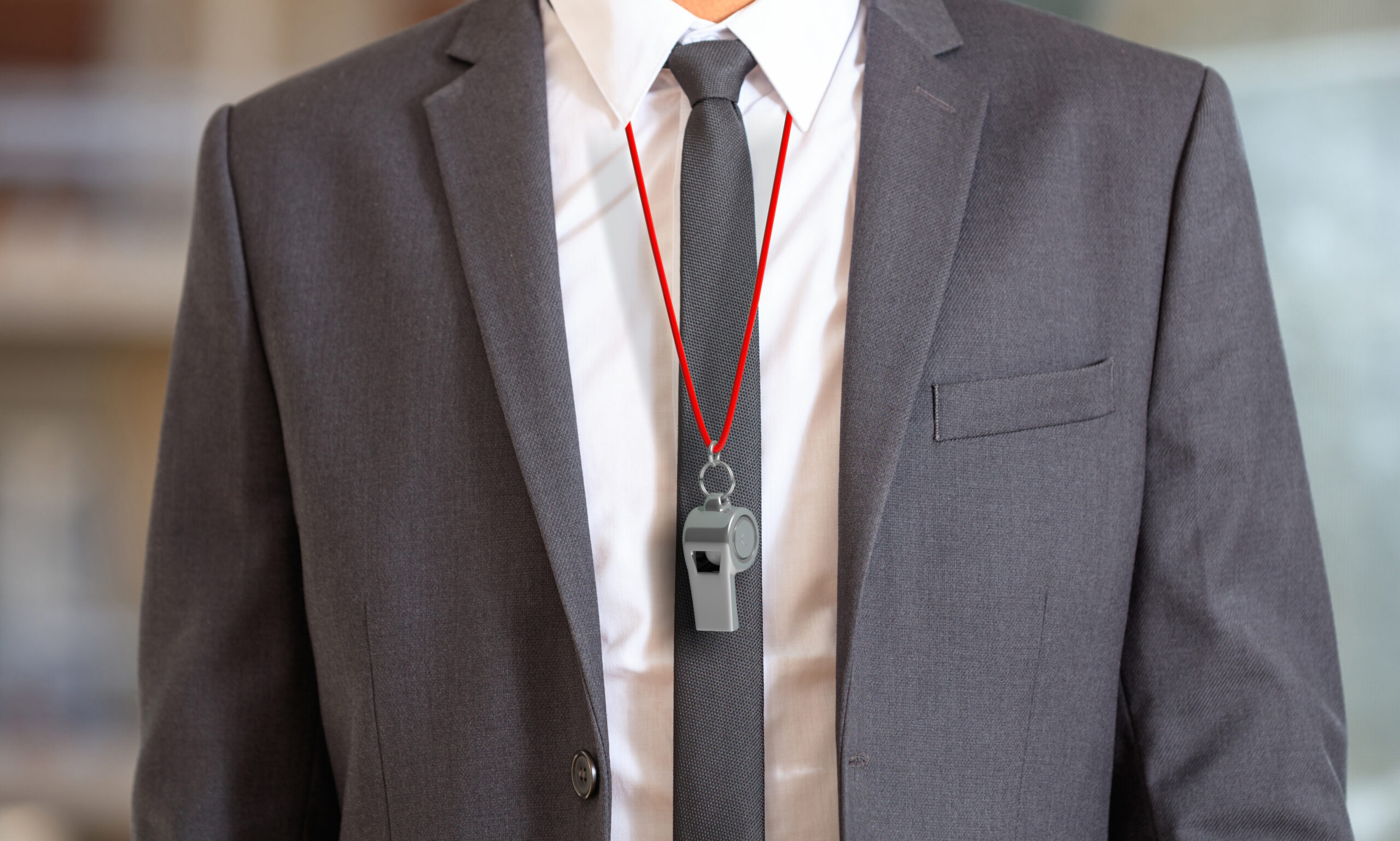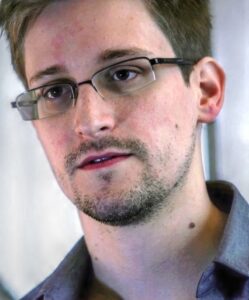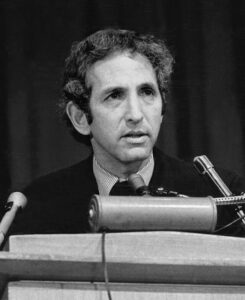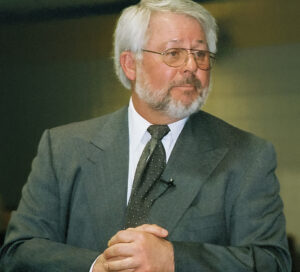Whistleblowers play a key role in revealing fraud and corruption, risking their personal and professional lives to disclose crucial information. The following list highlights whistleblowers, not limited to False Claims Act cases, whose bravery is notable. These whistleblowers are publicly known, although anonymity is possible with proper legal support.
 EDWARD SNOWDEN
EDWARD SNOWDEN
One of the most well-known famous whistleblowers in recent history is Edward Snowden. In 2013, Snowden, a former contractor for the National Security Agency (NSA), leaked classified information that revealed the extent of the NSA’s surveillance activities. His disclosures showed that the NSA was collecting massive amounts of data on American citizens, including phone records and internet activity, often without proper legal oversight.
Snowden’s revelations sparked a global debate about privacy and government surveillance. While he has been both praised as a hero and criticized as a traitor, there is no denying the significant impact of his actions. The leaks led to legal reforms and changes in the way data is collected and monitored by intelligence agencies.
SHERRON WATKINS
Sherron Watkins is another prominent whistleblower who exposed the financial misconduct of Enron, one of the largest energy companies in the world at the time. In 2001, Watkins, then a vice president at Enron, wrote a memo to CEO Kenneth Lay warning him about the company’s accounting irregularities. Her memo detailed how Enron was using accounting loopholes to hide debt and inflate profits.
Watkins’ warnings were initially ignored, but her memo eventually came to light as Enron’s financial troubles became public. Her actions were instrumental in uncovering the company’s fraud, which led to Enron’s bankruptcy and the conviction of several top executives. Watkins’ bravery earned her recognition as one of Time Magazine’s “Persons of the Year” in 2002.
 DANIEL ELLSBERG
DANIEL ELLSBERG
Daniel Ellsberg’s name is synonymous with the Pentagon Papers, a classified government study about the Vietnam War. In 1971, Ellsberg, a former military analyst, leaked the documents to The New York Times. The Pentagon Papers revealed that the U.S. government had systematically lied to the public and Congress about the war’s progress and its prospects for success.
Ellsberg’s leak had profound consequences, leading to a landmark Supreme Court case on press freedom and contributing to growing public opposition to the Vietnam War. Despite facing charges under the Espionage Act, Ellsberg’s actions are widely regarded as a crucial moment in American history that highlighted the importance of government transparency and accountability.
CHELSEA MANNING
Chelsea Manning, one of the most famous whistleblowers and a former U.S. Army intelligence analyst, leaked hundreds of thousands of classified documents to WikiLeaks in 2010. The leaked materials included diplomatic cables, military reports, and videos, shedding light on the realities of U.S. military operations in Iraq and Afghanistan, as well as the conduct of American diplomats.
Manning’s disclosures sparked a global debate on government secrecy, the ethics of whistleblowing, and the public’s right to know. Although she was sentenced to 35 years in prison, her sentence was commuted by President Barack Obama in 2017. Manning’s actions continue to provoke discussions about the balance between national security and transparency.
 JEFFREY WIGAND
JEFFREY WIGAND
Jeffrey Wigand is a former vice president of research and development at Brown & Williamson, a major tobacco company. In the mid-1990s, Wigand became a whistleblower by revealing that the company knowingly manipulated the levels of nicotine in cigarettes to increase addiction. His revelations were made public in a famous interview on CBS’s “60 Minutes.”
Wigand’s disclosures had a significant impact on the tobacco industry, leading to increased regulation and public awareness of the health risks associated with smoking. His story was later dramatized in the film “The Insider,” highlighting the personal and professional risks he faced in exposing the truth.
FRANK SERPICO
Frank Serpico is a former New York City police officer who exposed widespread corruption within the NYPD in the late 1960s and early 1970s. Serpico testified before the Knapp Commission, which was established to investigate police corruption. His revelations led to significant reforms within the department and highlighted the need for accountability and integrity in law enforcement.
Serpico’s story was later portrayed in the 1973 film “Serpico,” starring Al Pacino. Despite facing immense danger and ostracism from his colleagues, Serpico’s courage helped bring about crucial changes in policing practices.
CYNTHIA COOPER
Cynthia Cooper is known for uncovering the massive accounting fraud at WorldCom, one of the largest telecommunications companies in the world. In 2002, as the company’s internal auditor, Cooper discovered that WorldCom had inflated its assets by billions of dollars. Her findings led to one of the largest corporate scandals in U.S. history and the eventual bankruptcy of WorldCom.
Cooper’s actions were instrumental in exposing the fraud and led to significant changes in corporate governance and accounting practices. She was named one of Time Magazine’s “Persons of the Year” in 2002 for her bravery and dedication to ethical conduct.
MARK FELT
Mark Felt, also known as “Deep Throat,” was the anonymous source who provided information to Washington Post reporters Bob Woodward and Carl Bernstein during the Watergate scandal. Felt was the associate director of the FBI at the time and leaked information that helped uncover the involvement of President Richard Nixon’s administration in the break-in at the Democratic National Committee headquarters.
Felt’s leaks were crucial in leading to Nixon’s resignation and highlighted the importance of whistleblowers in holding the highest levels of government accountable. His identity as “Deep Throat” remained a secret until 2005, when he revealed his role in the scandal.
FREDERIC WHITEHURST
Frederic Whitehurst is a former FBI crime lab scientist who blew the whistle on misconduct and flawed forensic practices within the FBI’s crime lab in the 1990s. Whitehurst’s disclosures revealed that the lab’s practices often compromised the integrity of evidence, leading to wrongful convictions and serious miscarriages of justice.
Whitehurst’s bravery in exposing these issues led to significant reforms within the FBI and the broader forensic science community. His actions underscored the critical need for accuracy and ethical conduct in forensic investigations.

THE IMPORTANCE OF WHISTLEBLOWERS
The stories of famous whistleblowers like Edward Snowden, Sherron Watkins, Daniel Ellsberg, Karen Silkwood, Chelsea Manning, Jeffrey Wigand, Frank Serpico, Cynthia Cooper, Mark Felt, and Frederic Whitehurst demonstrate the profound impact that courageous individuals can have on our society.
If you are considering blowing the whistle, remember that you do not have to face this journey alone. Our whistleblower law firm is here to provide the support and protection you need to bring vital information to light and effect meaningful change.



 EDWARD SNOWDEN
EDWARD SNOWDEN DANIEL ELLSBERG
DANIEL ELLSBERG JEFFREY WIGAND
JEFFREY WIGAND